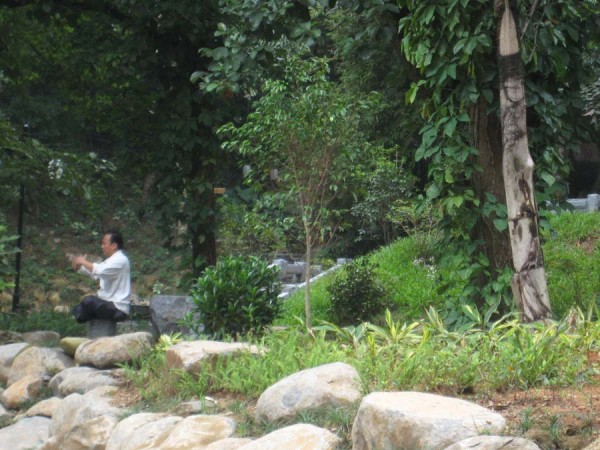Lao Tzu
Chapter 18 of The Dao
Article by Vonnie Boston.
The mighty way declined among the folk
And then came kindness and morality
When learning and intelligence appeared,
They brought with them a great hypocrisy
The six relations were no more at peace,
So codes were made to regulate our homes
The fatherland grew dark, confused by strife:
Official loyalty became the style.
Paraphrase by translator R. B. Blakney – There was a time when men shared with all other creatures the balance of nature, its spontaneity and effortless change. Then the process of civilization set in with its inevitable constituents, kindness, morality, wisdom and intelligence. Their opposites came with them: unkindness, immorality, foolishness and stupidity. Then there was trouble everywhere. The six family relations (father and son, elder and younger brothers, husband and wife etc ) are disturbed. The loyalty of public officers has become a pretense.
….
This poem seems more than apt this morning, I sense, having spoken with Tom, the owner of Café Paradiso in Mui Wo, Lantau. He was there in Mongkok on Saturday evening and said the amazing and mighty thing was how even the police are divided with some walking around talking, mingling discussing with the crowd and in no way presenting a threatening presence rather they seemed, he said, only interested in upholding the peace by expressing interest and even support, while their tougher troops are acting (and acting maybe the word) in more threatening manner.
Of course this is behaviour from a police force that must be acting, again!, under instruction. This clearly reflects the mix of confusion in the people’s emotions whether they be administrators, officials, capitalists or the mass of middle to lower income citizens … and this same conflict is by no means limited to Hong Kong as we see such dissent in so many countries plus stress and confusion in bureaucracy and systems in the most materialistic and so called successful countries.
The Tao Te Ching or Dao (The WAY) is ancient China’s great contribution to the literature of philosophy, religion and mysticism. A collection of 81 poems, it contains the time honoured teachings of Taoism and brings a message of living simply, finding contentment with a minimum of comfort, and prizing culture above all else.
It is an Eastern classic, the mystical and moral teachings of which have profoundly influenced the sacred scriptures or many religions … and the lives and happiness of countless men and women through the centuries.
The identity or authorship of the great work – The Dao – is complicated by the fact that no true mystic would know himself to be such. He could no more discuss mysticism at arm’s length, so to speak, than the Bible could discuss religion objectively. Christ, for example, does not mention religion, he is religious and all he does and says is therefore religious but not self-consciously so.
Poem 1 expresses something of this awareness which in more modern times has been eclipsed by the preponderance of ego and authorship and the drive to be outstanding and successful and march in step with materialism.
The secret waits for the insight
Of eyes unclouded by longing;
Those who are bound by desire
See only the outward container.






